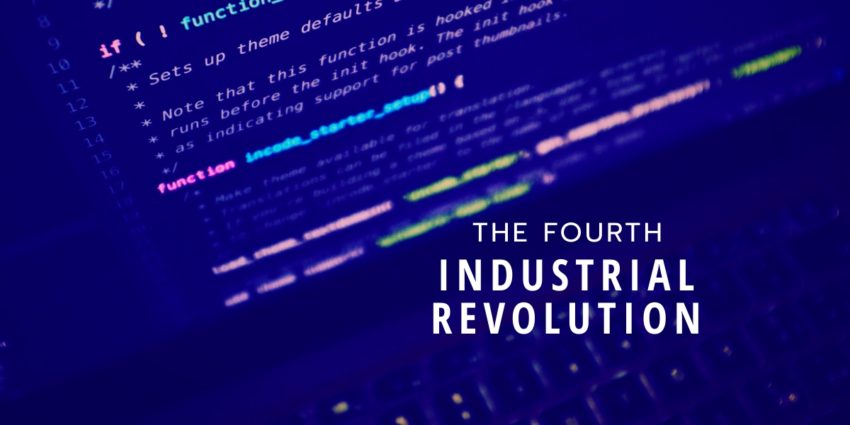The following themes are associated with the Fourth Industrial Revolution:
- Transportation: Electric and cleantech vehicles, self driving cars
- Climate: Renewable energies and portable energy storage
- Sovereignty: Cybersecurity, cryptocurrencies, privacy tech
- Automation: Drones, artificial intelligence, agtech, and cyber physical systems
As the Robots take over our jobs… Skills and Industries will be disrupted…
“Cooperation is the only thing that will redeem mankind. If we have the courage to take collective responsibility for the changes underway, and the ability to work together to raise awareness and shape new narratives, we can embark on restructuring our economic, social and political systems to take full advantage of emerging technologies.” – Martin Nowak, professor of mathematics and biology at Harvard University
Change Hurts…
- Between 2015-2020, 7.1 million jobs will be lost to new innovations and developments which will also pave the path for 2 million new jobs. This means there will be a net decline of 5.1 million jobs from the job market
- By another popular estimate, 65% of children entering primary school today will ultimately end up working in completely new job types that even don’t yet exist
- For all those still studying – nearly 50% of subject knowledge acquired during the first year of a four-year technical degree is outdated by the time students graduate
- On average, by 2020, more than a third of the desired core skill sets of most occupations will be comprised of skills that are not yet considered crucial to the job today
In a recent World Economic Forum survey:
- 50% of media, entertainment & information strategy officers agree that by 2025 90% of the news read by the general public will be generated by computers
- 70% of professional services strategy officers agree that by 2025, digital solutions will generate more revenue for professional services firms than services delivered by people
- 50% of institutional investor and sovereign fund strategy officers agree that by 2025, the majority of financial transactions as well as management of important documents will take place on blockchain architecture
- 75% of chemistry and advanced materials strategy officers agree that by 2025 the primary feedstock for chemical production will shift from oil & gas to biobased and recycled materials
- 63% of consumer industries strategy officers agree that by 2030 at-home manufacturing will be mainstream in both developed and developing markets as consumers 3D/4D print a wide variety of products at home

Global Income Inequality will rise:
- The richest 1% of the population now owns half of all household wealth, according to Credit Suisse’s Global Wealth Report 2015
- Oxfam’s new report presents an even more dramatic concentration of assets, finding that 62 individuals controlled more assets than the poorer 3.6 billion people combined, half the world’s population
- All industrial revolutions create and destroy jobs, but unfortunately there is evidence that new industries are creating relatively fewer positions than in the past
- This was a point stressed by the Swiss bank UBS in a report launched in Davos
- It notes that there will be a “polarization of the labor force as low-skill jobs continue to be automated and this trend increasingly spreads to middle class jobs”
- Smart machines will soon be able to replace all sorts of workers, from accountants to delivery drivers and from estate agents to people handling routine motor insurance claims
- The Forum’s Future of Jobs Report surveyed leading human resources executives and presents evidence that future jobs will increasingly require complex problem-solving, social and systems skills
- An upward bias to skill requirements disproportionally affect older and lower-income cohorts and those working in industries most prone to automation by new technologies
- Shifts in employment and skills may also increase gender inequality
- Unemployment due to automation has in the past concentrated in sectors that mostly employ men, such as manufacturing and construction
- But the ability to use artificial intelligence and other technologies to automate tasks in service industries puts many more job categories at risk in the future
- These include jobs that are the source of livelihood for many young female workers and lower-middle-class women around the world, including call centre, retail and administrative roles
- The Fourth Industrial Revolution may affect inequality across economies as well as within them
- In particular, the increasing flexibility of capital in the form of robots and other advanced manufacturing systems may erode the comparative advantage currently enjoyed by many emerging and developing countries, which are focused on labor-intensive goods and services
- The phenomenon of “re-shoring” could have a particularly negative effect on those least developed economies just beginning to industrialize as they integrate into the global economy
“The new technology age, if shaped in a responsive and responsible way, could catalyse a new cultural renaissance that will enable us to feel part of something much larger than ourselves – a true global civilization… We can use the Fourth Industrial Revolution to lift humanity into a new collective and moral consciousness based on a shared sense of destiny.” -Klaus Schwab

Greetings! I’ve been following your site for a while now and finally got the bravery to go ahead
and give you a shout out from Humble Texas!
Just wanted to mention keep up the fantastic
job! http://www.yahoo.net